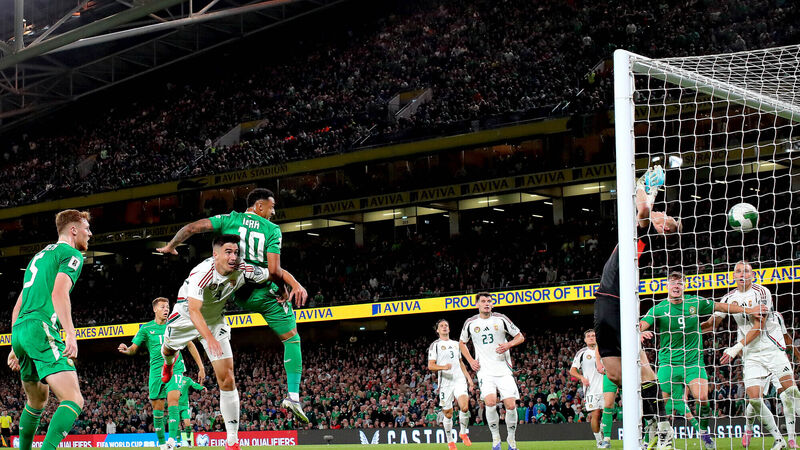Colin Sheridan: Ireland's heart still beats. Hope, however battered, remains renewable

Ireland’s Adam Idah scores the equaliser against Hungary. Pic: ©INPHO/Ryan Byrne
Being a Republic of Ireland football fan is less a pastime and more a neverending PhD in masochism. You don’t “watch” Ireland. You endure them, like tax returns or a Bank Holiday Monday in IKEA. Every campaign begins with hope, cascades through hubris, collides with reality, and ends with expectation gently lowered like an old dog into the boot of a Ford Granada.
And yet: Saturday night, in the Aviva, came something both familiar and absurd. Ireland went 2–0 down to Hungary - a nation that produced Puskás - only to haul themselves, improbably, joyfully, back to 2–2 in the dying embers. It wasn’t just a draw. It was a parable, a sermon on the Irish condition, a love letter to suffering.









